
Developer: Shirakumo Games
Publisher: Shirakumo Games
Platform: PC
Tested On: PC
Kandria – Review
Precision platforming games have become more popular ever since the massive hit that was Celeste. Chasing those highs, many developers tried their hand at the genre, however, all of these attempts had one more thing in common: linearity. Most of these titles only require players to progress forward, rarely, if ever, backtracking. Although some outliers exist (some sections in Hollow Knight come to mind), these are not the most common. Kandria is a recently released title that didn’t seem satisfied with this status quo, deciding instead to eschew linearity and go for recursiveness. Here is how it fares.
Story
The game’s story follows a recently re-awakened android with amnesia. Named “Stranger” by the people who had awakened her, she starts to help their community survive the post-apocalyptic world they’re in. In order to do so, Stranger will have to explore the underground ruins of the civilization, encountering other tribes of survivors along the way and interacting with them.
Overall, Kandria isn’t particularly heavy on the story front, limiting itself to a handful of plot threads and interactions with the other characters for objectives. While these interactions present some choices to add flavor, they ultimately don’t change the story itself. Alongside this, it is worth mentioning that what little story is there feels somewhat rushed, with events just happening one after another while thrusting the player in the middle.
Graphics
Kandria’s graphics are nothing to write home about. Featuring low-detail pixel art, the graphics are only somewhat impressive for backgrounds and environments, while being lackluster for characters outside of dialogues, where they’re presented in a visual novel style featuring sets of portraits with different emotions. Despite not being the best or highest quality graphics, they do their job well enough featuring enough detail for animations to be smooth and areas to be distinct from one another.
Sound
The game’s sound design is surprisingly poignant thanks to its soundtrack, which conveys a melancholic vibe that tinges on the whole game and further emphasizes the fact that the world it takes place in is dying. Other than this, the SFX are pretty decent and do their job nicely. That said, the lack of voice acting is something that could be improved upon, since the game doesn’t feature that much dialogue to start with.
Gameplay
As stated in the introduction, Kandria is a precision platformer taking a recursive approach to its world. Instead of linear segments that are never revisited, players will have to progress through an interconnected world where they’ll be able to loop around through alternate pathways, unlock shortcuts, and even fast-travel on occasion. While exploring, they’ll encounter areas covered in spikes which will reset the room if hit, with more hazards such as wind or dash resets being introduced later on.
In order to traverse these areas, players will be able to dash, climb walls (until stamina runs out) or chain aerial combos to move slightly further. By utilizing their kit properly, players will be able to move across wide distances and explore further and further. This movement kit doesn’t really evolve later into the game, and you’ll mostly be presented with harder and longer challenges to overcome. While some new things like gas explosions or springs are still introduced, the core doesn’t change.
Alongside the precision platforming, Kandria features some amount of combat. To overcome battles, players have access to a decent selection of light and heavy combos. That said, the enemy AI is not particularly deep and the light combo is good enough to stun-lock almost any move, ultimately making what is a rather smooth system go to waste. The only part of the combat that makes Kandria somewhat challenging is the sheer damage that enemies deal and the chance of getting sandwiched by groups. In such cases, escape becomes rather hard, since dashing while an enemy is attacking triggers a counterattack instead of a proper dash. Although these deal decent enough damage and are rather effective, they can often cost a life when facing several enemies on each side.
Adding onto this, Kandria’s combat is somewhat unnecessary, since levels are gained by exploring and gathering items from the ground rather than by beating enemies. Furthermore, other than the sandwiching cases previously mentioned, almost every encounter can be ignored unless it is story mandated to clear a quest. Boss battles can, of course, not be ignored either. What makes engaging in combat even worse is the fact that dying to an enemy will reset progress up to the latest save. Add the fact that healing materials are rather scarce, and you can have a rather frustrating experience on your hands.
Besides this permadeath, the other main caveats the game has are directly related to its openness, which allows players to go anywhere at any time. While this is a good idea on paper, the fact that no events, missions, or bosses can be encountered until the story has progressed enough makes exploring a bit of a waste of time. Although in some rare cases a quest can be finished if the player has already explored the location it’s set in, these are few and far between, instead often requiring a revisit to an area with nothing left to find.
Rubbing salt in the wound, the extremely limited fast travel system only working in a handful of locations forces players to manually backtrack every single time, thus needing to solve platforming puzzles in reverse to get anywhere. Should the player need to go through an area more than once, they’ll ultimately be required to do the platforming segment on the way in and the way out every single time, which ends up making traversal rather frustrating.
The only redeeming grace for these flaws are some rather good accessibility settings, such as infinite dashes, god mode, or revival after death (instead of losing progress). While welcome, these act as somewhat of a crutch to cover for the game’s failings, which should’ve been ironed out instead. Alongside this, Kandria also has some technical issues, probably due to its custom engine, which may cause crashes or for the game to not work after alt-tabbing while in full screen.
Conclusion
Kandria is a rather enjoyable game with some good ideas that trip and fall due to some questionable decisions. Although the title is still recommendable, player discretion is in order with counterintuitive things like not exploring more than necessary being somewhat required for a better experience. While not the most expensive title at €16,79/$19.99/£15.49, waiting for a sale is very much recommended.
Personal Opinion
“Look, I want to love Kandria but spending 5 hours exploring the map only to find out I cannot do anything since I haven’t progressed the story was a kick in the balls. Right after said kick, the game came back with a baseball bat to hit me again by forcing me to go through all of the areas while doing the platforming in reverse and with little health. This, combined with the fact that saves are not common and that I lost some sizeable chunks of exploration by dying made me want to play the game less and less. Although I ended up compromising and enabling infinite dash while backtracking and giving up on the combat altogether, I felt rather disappointed at how necessary that felt to maintain my enjoyment of a game that I was loving up till then. I still honestly recommend giving this one a shot, as the gameplay is incredibly smooth and fun, with the timed challenges adding some spice and the main story being decent. Even so, you best stick to the intended progression unless you want to suffer.”
Kandria - Review,
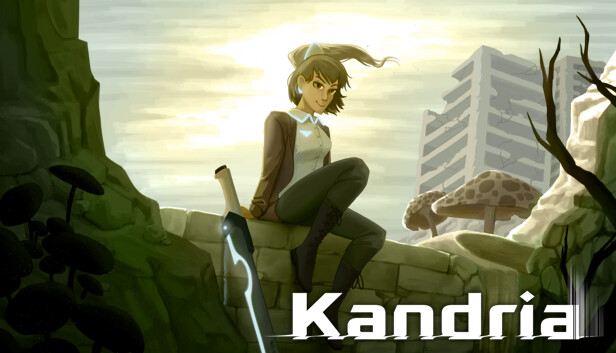
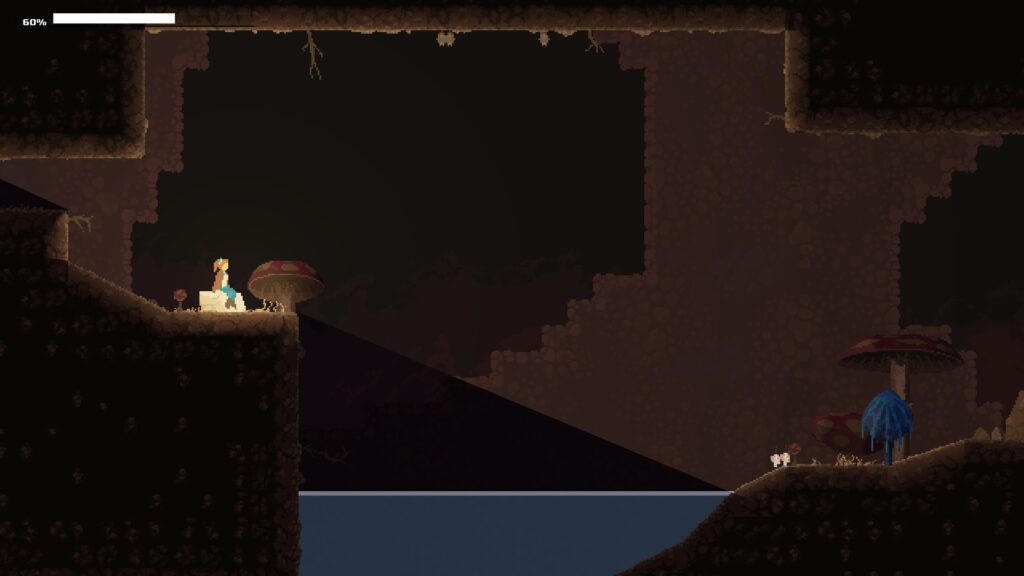
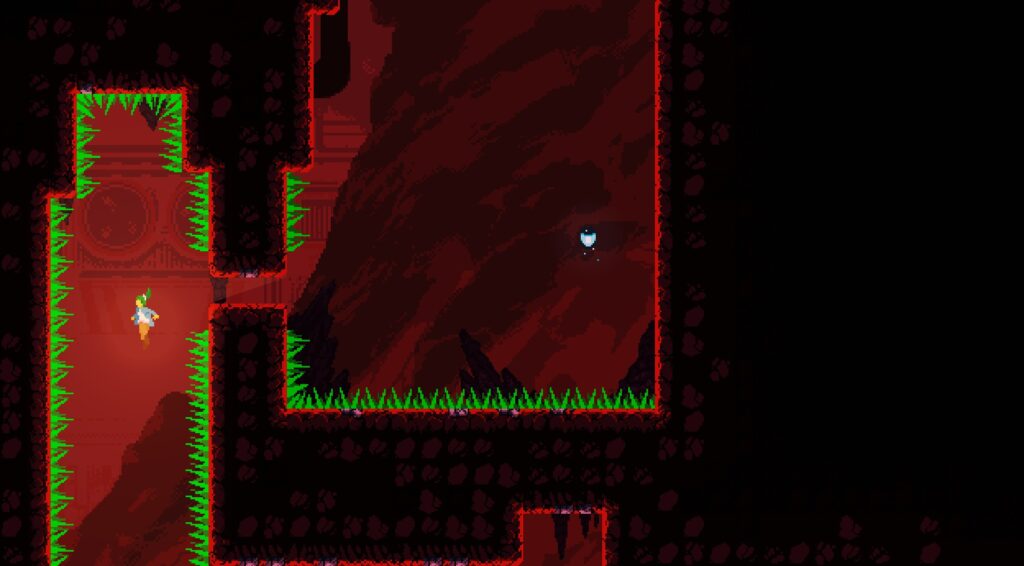
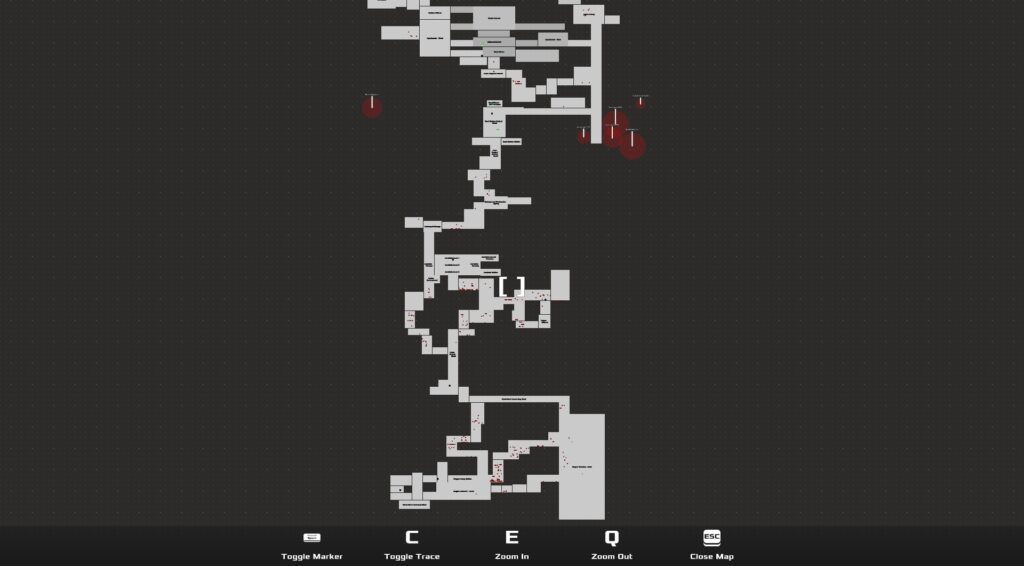
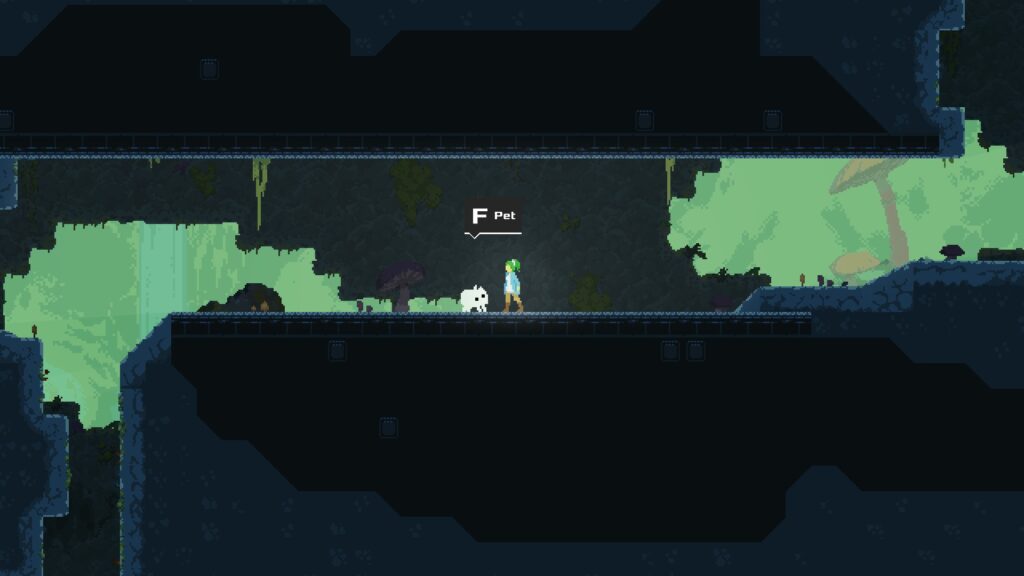



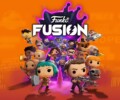
No Comments